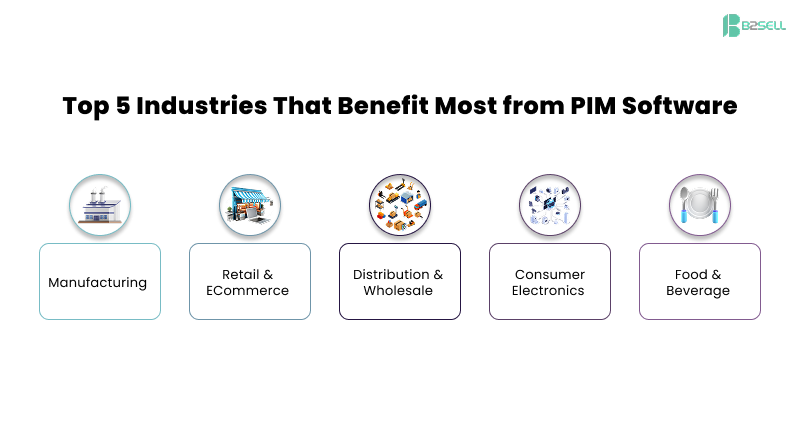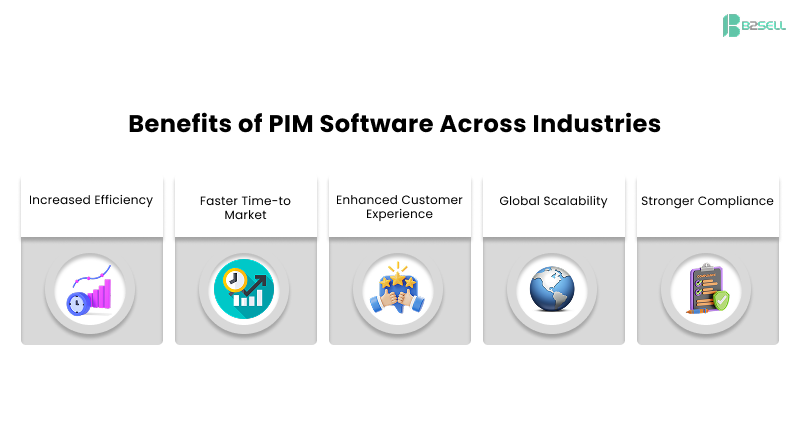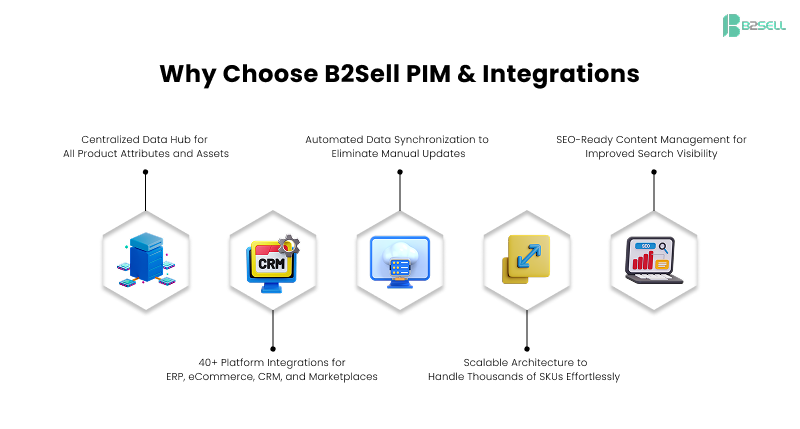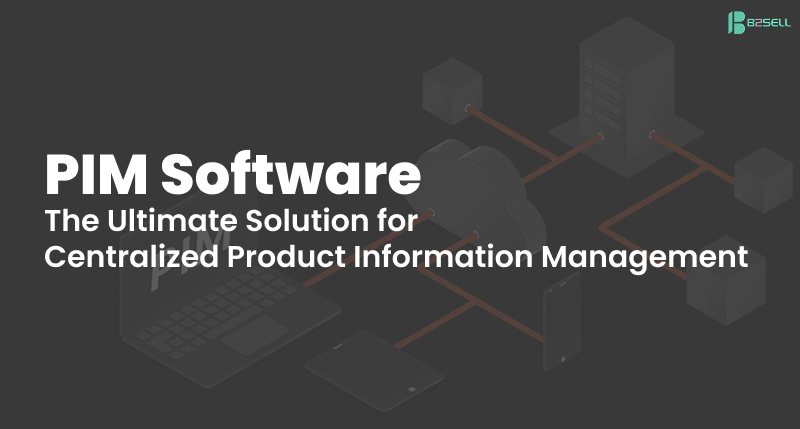Introduction: Why PIM Software is a Game-Changer in 2025
In today’s digital-first economy, product information management (PIM) software is no longer a luxury—it’s a necessity.
Customers now interact with brands across multiple touchpoints: websites, marketplaces, social media, mobile apps, and even physical stores. To deliver consistent, accurate, and compelling product data everywhere, businesses need a PIM system that centralizes, enriches, and distributes product content seamlessly.
From manufacturers to eCommerce retailers, PIM solutions help ensure that product details—such as specifications, images, videos, pricing, and marketing copy—are always correct, up-to-date, and optimized for every channel.
But not all industries benefit equally. Certain sectors experience transformational impact from PIM integration—where it connects with ERP, CRM, and eCommerce platforms—leading to faster operations, fewer errors, and higher customer trust.
This guide explores the Top 5 industries that benefit most from PIM software and how B2Sell’s PIM solutions empower them to deliver exceptional product experiences and drive growth.
What is PIM?
PIM stands for Product Information Management—a software solution designed to centralize, manage, enrich, and distribute product information across multiple channels.
Key Functions of a PIM System
- Centralized Product Database: A single source of truth for all product-related data.
- Data Enrichment: Adding marketing descriptions, images, videos, and SEO tags.
- Channel Syndication: Distributing product data to eCommerce platforms, marketplaces, print catalogs, and POS systems.
- Integration Capabilities: Connecting with ERP, CRM, and supply chain systems.
- Workflow & Governance – Assigning roles, approvals, and version control to keep data clean.
Why Businesses Choose the Best PIM Software
- Efficiency: Eliminates manual updates across dozens of platforms.
- Speed: Faster product launches with automated data syndication.
- Accuracy: Reduces costly errors in pricing, specs, or descriptions.
- Scalability: Handles multilingual and multi-market operations effortlessly.
- Customer Experience: Delivers the right product information, in the right place, at the right time.
Top 5 Industries That Benefit Most from PIM Software

1. Manufacturing
Manufacturers often manage thousands of SKUs across diverse product lines. With global distribution and multiple sales channels, product information can easily become inconsistent.
- The Manufacturing Data Challenge
- Manufacturers manage a dual identity:
- Engineering-driven data for production (BOMs, technical drawings, materials lists)
- Consumer-friendly content for marketing and sales (descriptions, images, compliance statements)
- Key challenges:
- Complex hierarchies: Parent products with multiple variants
- Engineering change management: Rapid updates that must be reflected everywhere
- Global compliance requirements: RoHS, REACH, UL, and industry-specific certifications
How PIM Empowers Manufacturers
- Version Control & Change Management → All changes tracked, approved, and propagated instantly
- ERP-PIM Synchronization → BOM changes flow directly into product specs without manual re-entry
- Regulatory Metadata Management → Safety data sheets, certificates, and test results stored and ready for partner access
- Multi-format Catalog Generation → Instant creation of print catalogs, PDF spec sheets, and e-commerce feeds
Example:
A manufacturer of industrial equipment uses B2Sell PIM to update product specifications across 30+ regional distributor websites in minutes instead of days.
B2Sell Advantage
B2Sell’s PIM for manufacturers seamlessly integrates with ERP systems like SAP, NetSuite, and Prophet 21—ensuring engineering, marketing, and sales teams all work from the same accurate data.
2. Retail & eCommerce
Retailers—especially in omnichannel eCommerce—must ensure consistent product data across online stores, marketplaces, mobile apps, and physical POS systems.
Challenges Without PIM:
- Inconsistent pricing and descriptions across channels.
- Manual updates slowing down seasonal product rollouts.
- Inaccurate product filters and attributes leading to poor searchability.
How PIM Solves These Issues:
- Centralized updates to pricing, images, and stock information.
- Automatic syndication to Shopify, Magento, Amazon, Walmart, etc.
- SEO optimization for product listings to increase organic traffic.
Example:
A fashion retailer uses B2Sell’s PIM system to launch new collections across five eCommerce platforms within hours instead of weeks.
Integration Workflow Example
- Vendor uploads product feed to PIM.
- PIM enriches with descriptions, lifestyle images, and metadata.
- Product data automatically updates across all marketplaces and in-store POS systems.
B2Sell Advantage
B2Sell’s PIM integration for retail enables instant updates to multiple eCommerce platforms while ensuring SEO consistency—reducing cart abandonment caused by incomplete or incorrect product data.
3. Distribution & Wholesale
- Distributors manage massive, diverse product portfolios sourced from dozens or hundreds of manufacturers. Each source provides data in different formats, with varying completeness and accuracy.
- Challenges include:
- Data ingestion from XML, CSV, PDF, and API sources
- Data enrichment with pricing tiers, shipping dimensions, and promotional details
- Retailer-specific formatting for portals and marketplaces
PIM Advantages for Distributors
- Central Data Aggregation Hub → Consolidates and normalizes vendor data
- Enrichment Workflows → Adds market-specific details without altering original manufacturer data
- Automated Channel Mapping → Ensures each retail partner receives compliant, properly formatted feeds
- Data Quality Dashboards → Identifies missing fields and tracks feed performance
Example:
An automotive parts distributor uses B2Sell PIM integration to keep 250,000+ SKUs synchronized across ERP, eCommerce, and dealer portals.
B2Sell Advantage
B2Sell’s PIM for distributors eliminates data chaos by automating supplier feed imports, ensuring up-to-date pricing and availability across sales portals.
4. Consumer Electronics
Electronics products require highly detailed specifications—dimensions, compatibility, certifications, warranty details—and frequent updates due to fast innovation cycles.
Challenges Without PIM:
- Outdated technical specifications across sales channels.
- Inconsistent product compatibility information.
- Difficulty in managing multilingual content for global sales.
How PIM Helps:
- Centralizes and distributes highly technical data with precision.
- Supports multilingual content for international markets.
- Reduces product returns caused by incorrect specifications.
Example:
A smartphone accessories brand uses B2Sell’s PIM system to instantly update compatibility details for new devices launched across global marketplaces.
5. Food & Beverage
The F&B industry must comply with strict regulations for ingredients, nutrition labels, and allergens—making accurate product data critical.
Challenges Without PIM:
- Inconsistent allergen and ingredient data across channels.
- Difficulty meeting regional compliance requirements.
- Manual updates slowing seasonal promotions.
How PIM Ensures Compliance & Speed:
- Centralizes nutritional, allergen, and ingredient information.
- Ensures compliance with local labeling laws.
- Accelerates seasonal product launches and promotional updates.
Example:
A gourmet food brand uses B2Sell PIM integration to keep ingredient lists updated in real-time across retail partner websites and packaging systems.
Benefits of PIM Software Across Industries
Regardless of the industry, businesses experience key benefits when implementing a PIM system:

- Increased Efficiency: Automates product data updates across channels.
- Faster Time-to-Market: Reduces delays in launching new products.
- Enhanced Customer Experience: Delivers consistent, accurate, and detailed product information.
- Global Scalability: Supports multilingual and localized content.
- Stronger Compliance: Ensures regulatory data accuracy.
How PIM Integration Multiplies ROI
When PIM works in isolation, it’s powerful. But when it integrates with ERP, CRM, DAM, and eCommerce systems, it becomes transformative. The true power of PIM software emerges when it integrates seamlessly with:
- ERP systems (SAP, NetSuite, Prophet 21, Sage, Infor)
- eCommerce platforms (Shopify, Magento, BigCommerce)
- CRM tools (Salesforce, HubSpot)
With B2Sell PIM integrations, businesses can synchronize product data across every operational system, eliminating silos and reducing manual work.
FAQs: PIM Software & Industry Use Cases
Q1: What is the difference between PIM and ERP?
ERP manages operational data like inventory and finances, while PIM focuses on product content for sales and marketing channels.
Q2: How does PIM improve SEO?
By ensuring product metadata, titles, and descriptions are consistent and optimized across every channel.
Q3: Is PIM only for large businesses?
No. Even small businesses benefit from PIM systems—especially if they manage products across multiple channels.
Q4: Can PIM integrate with my existing systems?
Yes. B2Sell PIM integrations work with popular ERP, CRM, and eCommerce platforms.
Q5: What is the best PIM software for manufacturers?
The best option depends on your integration needs—B2Sell PIM is ideal for manufacturers needing ERP and eCommerce connectivity.
Why Choose B2Sell PIM & Integrations
B2Sell’s Product Information Management (PIM) solution is purpose-built for industries like manufacturing, retail, distribution, healthcare, and food & beverage—where accuracy, speed, and scalability in product data are critical for success. It combines powerful data management capabilities with seamless integrations, making it easier than ever to manage complex product catalogs across multiple channels.
Below are the key features that set B2Sell PIM apart:

1. Centralized Data Hub for All Product Attributes and Assets
B2Sell PIM acts as your single source of truth for all product data—names, SKUs, specifications, pricing, images, videos, manuals, and more.
- Eliminates scattered spreadsheets and fragmented databases.
- Allows easy updates to product information in one place, instantly reflected across all connected systems.
- Improves collaboration between product, marketing, and sales teams.
Example: A manufacturer can update a product specification in B2Sell PIM, and it will automatically sync to the company’s eCommerce store, distributor portals, and marketing channels.
2. 40+ Platform Integrations for ERP, eCommerce, CRM, and Marketplaces
B2Sell PIM seamlessly integrates with ERP systems like SAP, NetSuite, Sage, and Prophet 21; eCommerce platforms like Magento, Shopify, and BigCommerce; CRM tools like Salesforce; and major marketplaces such as Amazon and Walmart.
- Reduces the need for manual data imports and exports.
- Ensures real-time data consistency across all platforms.
- Speeds up product launches and updates by syncing data instantly.
Example: A retailer selling on Shopify and Amazon can push updated product prices from B2Sell PIM to both platforms without any manual work.
3. Automated Data Synchronization to Eliminate Manual Updates
With B2Sell PIM, product updates, new listings, and inventory changes happen automatically—saving hours of manual work and reducing the risk of human errors.
- Real-time sync ensures customers always see the latest product details.
- Automation reduces operational overhead and boosts productivity.
- Supports bulk updates for large catalogs in seconds.
Example: A distributor adding 500 new SKUs from a supplier can bulk import and publish them to all sales channels without manual entry.
4. Scalable Architecture to Handle Thousands of SKUs Effortlessly
Whether you have 500 products or 500,000, B2Sell PIM is built to scale with your business.
- Handles large, complex product catalogs with ease.
- Maintains fast performance even as product lines expand.
- Flexible data structures to accommodate unique attributes for different product types.
Example: A growing electronics brand can continuously add new models and variants without worrying about system slowdowns or messy data.
5. SEO-Ready Content Management for Improved Search Visibility
B2Sell PIM is designed to not only store product data but also optimize it for search engines.
- Add meta titles, descriptions, and keyword-rich product copy directly within the PIM.
- Maintain SEO consistency across all sales channels.
- Improve search rankings, leading to higher organic traffic and conversions.
Example: A food & beverage brand can enrich product descriptions with nutritional keywords, boosting visibility on both Google and marketplace searches.
✅ By partnering with B2Sell Integrations, businesses can:
- Streamline product data management to cut operational costs.
- Improve accuracy and consistency across all customer touchpoints.
- Accelerate product launches for a faster time-to-market.
- Boost conversions with rich, optimized, and up-to-date product content.
Conclusion: Power Your Business with PIM
Whether you’re in manufacturing, retail, distribution, automotive, or healthcare, PIM software is no longer optional—it’s a competitive necessity.
With B2Sell PIM, you gain a future-ready, integration-friendly solution that helps you streamline product data, boost sales, and build customer trust.
📢 Take the next step:
Contact B2Sell today to discover how our PIM solutions can revolutionize your product information management.






